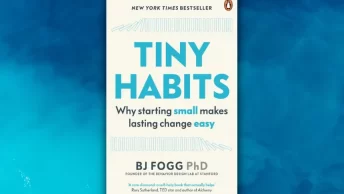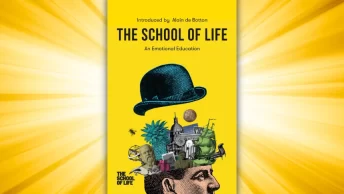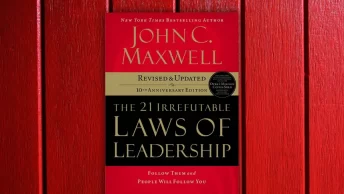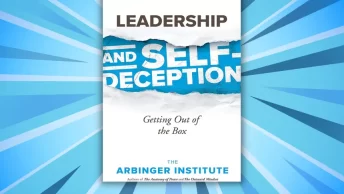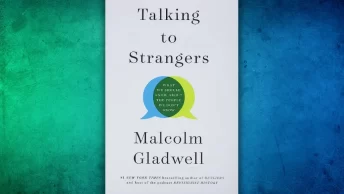The Happiness Hypothesis: Finding Modern Truth in Ancient Wisdom PDF is a non-fiction book authored by Jonathan Haidt, professor of psychology at the University of Virginia. Published by Basic Books in 2006, it examines ancient philosophical wisdom and its relevance to modern life.
The book consists of 10 chapters that explore various ancient principles and how they can be applied to modern life and looks at the benefits of leading a balanced life. It also draws on research in psychology and neuroscience to explain how some ancient principles are still applicable today.
The book has been praised by reviewers and readers alike for its intelligent synthesis of Eastern and Western philosophies, as well as its clear writing style. The Happiness Hypothesis has sold over 150,000 copies and is available in paperback, hardcover, eBook, and audiobook formats.
Table of Contents
The Happiness Hypothesis Summary
The book starts with a discussion of the conflict between our modern lives and ancient wisdom. Haidt argues that in order to be happy, we must go beyond relying on materialistic things such as wealth or success. He believes that true happiness comes from living according to ancient wisdom found in different cultures around the world.
This ancient wisdom is divided into two parts; the first, which he calls the “Happiness Hypothesis”, states that we should strive for “the good life” by striving for meaningful relationships and spiritual growth. The second part of the book examines various techniques to achieve this goal, such as finding one’s purpose in life, cultivating gratitude, and engaging in a regular practice of meditation or yoga.
Haidt also looks at the science behind happiness, discussing various studies and theories such as positive psychology, the Pleasure Principle, and the Hedonic Treadmill. He describes how these scientific findings can be used to help us find joy in our lives. Finally, he provides practical advice on how to use this knowledge to improve our daily lives.
Details of The Happiness Hypothesis Book
| Book | The Happiness Hypothesis |
| Author | Jonathan Haidt |
| Original language | English |
| Originally published | 2006 |
| Category | Self Help |
| Publisher | Basic Books |
| Total Pages | 320 |
| Format | PDF, ePub |
Multiple Languages Editions of The Happiness Hypothesis Book
The Happiness Hypothesis book has been translated into multiple languages such as German, Spanish, Japanese, Chinese and Korean. This gives readers from different countries the opportunity to read the book in their native language.
| Book Editions | Check Now |
|---|---|
| English | Check Price |
| Spanish | Check Price |
| Chinese | Check Price |
About the Author
Jonathan Haidt is an American social psychologist and professor of ethical leadership at New York University’s Stern School of Business. He is the author of The Happiness Hypothesis, a book that explores how ancient wisdom can help us live better lives in modern times.
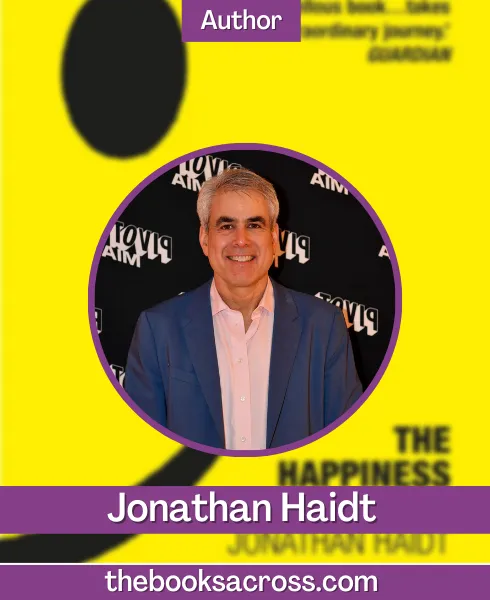
Haidt completed his undergraduate studies in philosophy at Yale University in 1985, before earning his Ph.D. in Social Psychology from the University of Pennsylvania in 1992. He has since held a variety of teaching positions at the Universities of Virginia, Chicago, and New York.
Outside of academia, Haidt is well-known for his thought leadership on topics such as happiness and morality. He was named one of the world’s top 100 Public Intellectuals by Foreign Policy magazine in 2008. He is also the author of three books: The Happiness Hypothesis (2006), The Righteous Mind (2012), and The Coddling of the American Mind (2018).
Haidt’s work has been widely praised by some of the leading figures in psychology, including Daniel Kahneman, Steven Pinker, and Paul Bloom. Through his books, lectures and interviews, he has helped to popularize the importance of understanding ancient wisdom and how it can be applied to contemporary life.
The Happiness Hypothesis PDF Free Download
Click on the download button below to get a pdf file of The Happiness Hypothesis book.
Similar Books to The Happiness Hypothesis Book
- Stumbling on Happiness by Daniel Gilbert
- Flourish: A Visionary New Understanding of Happiness and Well-Being by Martin Seligman
- How We Decide by Jonah Lehrer
- Thrive by Arianna Huffington
- The Power of Habit by Charles Duhigg
- Drive: The Surprising Truth About What Motivates Us by Daniel Pink
- Mind over Mood by Dennis Greenberger and Christine Padesky
- The Upside of Stress: Why Stress Is Good for You, and How to Get Good at It by Kelly McGonigal
- Positive Psychology: The Scientific and Practical Explorations of Human Strengths by C.R. Snyder and Shane J. Lopez
- Self-Compassion by Kristin Neff
FAQs(Frequently Asked Questions)
What is The Happiness Hypothesis book about?
The Happiness Hypothesis by Jonathan Haidt is an exploration of the various theories about happiness presented in history and philosophy.
How many pages is The Happiness Hypothesis?
The Happiness Hypothesis is a relatively short book. It contains 220 pages, including an introduction and epilogue.
What is the main idea of The Happiness Hypothesis?
The main idea of The Happiness Hypothesis by Jonathan Haidt is that true happiness comes from living a life of virtue.
How long does it take to read The Happiness Hypothesis book?
The length of time it will take to read The Happiness Hypothesis depends on the reader’s individual reading speed.
Who is the target audience of The Happiness Hypothesis book?
The Happiness Hypothesis by Jonathan Haidt is targeted to readers who are interested in exploring the theories of happiness and how they can be applied to life.


